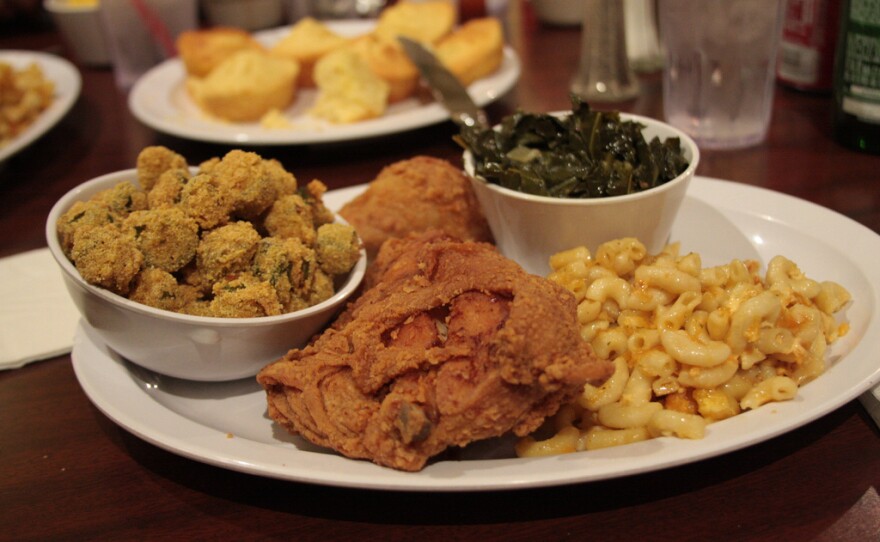Adrian Miller calls himself a “recovering lawyer and politico turned culinary historian.” He went from working as a special assistant to former President Bill Clinton and a legislative director for former Colorado Governor Bill Ritter to becoming a soul food scholar.
“Practicing law was not the thing for me,” Miller says.“I was singing spirituals in my office, so I figured I needed to do something else.”
Miller ate at 150 soul restaurants in 35 cities and talked to anyone he could find who was willing to talk about soul food. “The most fun I had was eating my way across the country,” Miller says. He read cookbooks, African-American elders, and old newspaper articles in his research.
His book is structured around the dishes that make up a typical soul food meal, including fried chicken, chitlins, yams, and “red drinks.” He explores how they got on the soul food plate and what it means for African-American culture and identity.
Host Frank Stasio talks to Miller about his book “Soul Food: The Surprising Story of an American Cuisine, One Plate at a Time”(UNC Press/2013) and his current project documenting the work of black chefs in the White House.
Miller started out looking at ethnic cuisines celebrated around America and wondering why soul food was overlooked.
“Soul food is really the celebration food of the South,” Miller says. “The things like fried chicken, the glorious cakes, cobblers, all that stuff – that was once-in-a-while food. Special occasion food. But as people prosper, they remember the good life and they start to recreate home by celebrating the good life more than every once in a while.”
But while there’s an overlap of soul food and Southern food, Miller draws a clear distinction.
“I think soul food is more about what African-Americans are eating outside the South,” Miller says.“I think soul food is more intense. It’s going to be spicier, sweeter, maybe have more fat.”
Miller went back in time to retrace food origins and found a lot of ingredients and recipes borrowed from other cultures and modified.
Take pasta for example. African-Americans often lived near other immigrant communities, such as Italians and the Chinese. African-Americans took yaka mein, a Chinese meat and noodle soup, and added a creole twist. Macaroni and cheese, originally a European royal food, spread to the wealthy in America and then to the black communities.
Though a portion of soul food originates in other cultures, a lot traces back to west Africa before slavery. Dark, leafy greens, Miller says, are central to west African cooking, especially with a meat seasoning. In Africa, people flavored greens with fish but that changed once they became slaves in America.
“These immigrants coming across the Atlantic, forced immigration, settling in a new place, trying to recreate home,” Miller says. “They couldn’t get the fish that they had back home, but they would use pork to create a similar flavor.”
Food isn’t the only part of soul food from west Africa. Some red drinks, like cola and hibiscus teacome from the region as well.
“Red is not only a color, it’s a flavor,” Miller says.









